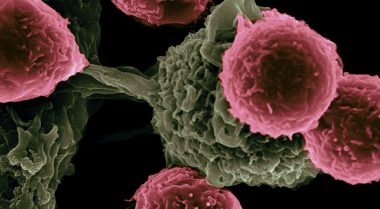Freya Pollington
PhD Student (Big Data for Complex Disease programme) at University College London (UCL)

I am a health data scientist with an academic background in biomedical science and health data analytics, with some experience working for the NHS as a Data Analyst. I am interested in applying both traditional statistical methods and machine learning techniques to big health data to better elucidate the symptoms and risk factors for complex diseases, in particular gastrointestinal disease. I am also intrigued by the interplay between environmental factors, the microbiome and genetic predisposition to disease.
Project Information
Research Driver Programme: Big Data for Complex Diseases
Title: Improving risk stratification for the diagnosis of cancer and non-neoplastic disease in patients presenting with new symptoms in primary care
Summary:
In the UK, the challenge of early diagnosis is well-understood for cancer, but investigation into diagnostic delay is lacking for other diseases. Meticulous analysis of electronic health records can provide information to support doctors in deciding when to order specialist tests or refer a patient, however the potential of such data remains under-explored. This PhD project will systematically examine the predictive value of symptoms for cancer and a range of consequential non-neoplastic conditions where diagnostic delay may be important. We hope to improve our understanding of risk of complex disease after symptomatic presentation, with the emerging findings supporting NICE guideline recommendations for the diagnosis of different cancers and non-neoplastic diseases.
What is your motivation for undertaking this project and how will this funding impact your research?
During my time working for the NHS, I became acutely aware of the challenges complex diseases pose to the healthcare system and population morbidity and mortality. Early diagnosis is crucial for optimisation of patient outcomes as well as healthcare economics. When I came across the Big Data for Complex Diseases Driver Programme, it seemed a natural fit given my background and motivations. The studentship funding provides the perfect opportunity to delve into big data research, aiming to culminate in actionable insights to improve diagnosis of complex disease.


